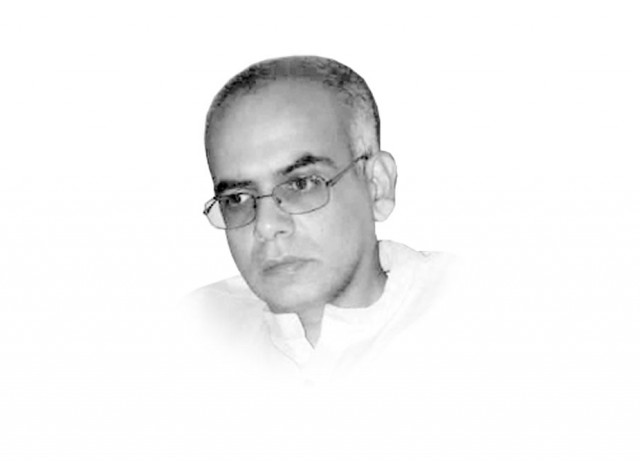Education crisis
Politicians should focus on trying to ensuring state institutions are implementing constitutional right to education.

The writer is a development consultant and a PhD student at the University of Melbourne
syed.ali@tribune.com.pk
The government blaming non-state actors for trying to destabilise Pakistan is one thing, but for a public representative to try and shun the responsibility of helping secure the right to education to the people she is supposed to represent is another matter altogether. The mentioned statement was made during a recent National Assembly meeting when a unanimous resolution was passed against anchorpersons who telecast programmes against parliamentarians without verifying facts or with malicious intent. It was at this time that the PPP parliamentarian criticised a promotional advertisement for education on a private television channel for blaming politicians for the poor state of the country’s education sector, terming it a conspiracy against democracy. Education campaigners (the Alif Ailaan Campaign) have issued a statement in response to the PPP parliamentarian’s statement on the floor of the National Assembly, terming it a damaging and irresponsible act.
While education in our country has been beset by a range of problems, including resource constraints and institutional failures, the fact of the matter is that politicians do share much of the blame. One doesn’t need to be a political scientist to understand that politicians are meant to be the common peoples’ representatives and they have the primary responsibility to help meet their basic needs. Politicians cannot absolve themselves from this basic responsibility.
There is a plethora of research pointing to the detrimental role played by politicians in the financial misappropriation of funds reserved for education and in the appointment of ill-qualified teachers who, in turn, draw government salaries without fulfilling their responsibilities of providing a good education to their students.
When she was a provincial information minister a couple of years ago, the PPP parliamentarian participated in a “Life-based skills education for children” event organised by NGOs in Karachi, where she claimed that she and her family members were “disgusted” with the media’s preoccupation with power politics, which had little implication for the lives of ordinary people. She questioned why TV channels didn’t talk about important issues such as education, health and other problems affecting the youth of the country.
The prevailing illiteracy in our country is seriously undermining our national capacity to deal with the challenges of the 21st century. The Pakistan Education Taskforce’s report, “Education Emergency Pakistan 2011”, highlighted the severe extent of the problem. One out of every 10 children not currently in school across the world belongs to Pakistan. Almost one-third of Pakistanis have received less than two years of education and just 23 per cent of our children under the age of 16 attend secondary school. Moreover, half of the schoolchildren (aged six to 16 years) in Pakistan cannot read or write adequately. Given this situation, we need politicians, the media and civil society to join hands and help address the multiple problems that plague our education system.
Politicians themselves have helped forge a national consensus on the importance of education. The Eighteenth Amendment to the Constitution now includes Article 25-A, which guarantees children, between five and 16 years, the right to an education. Instead of issuing irresponsible statements, politicians like the PPP parliamentarian should now be focusing on trying to ensure that relevant state institutions are implementing the constitutional right to education in poor districts like Sanghar in Sindh, which happens to be her own electoral constituency.
Published in The Express Tribune, March 18th, 2013.













COMMENTS
Comments are moderated and generally will be posted if they are on-topic and not abusive.
For more information, please see our Comments FAQ